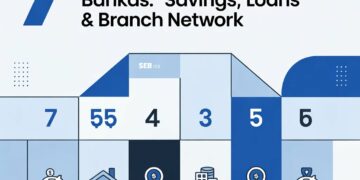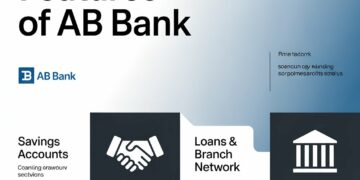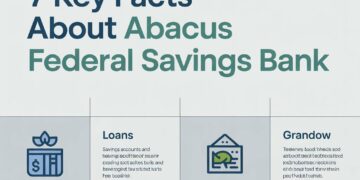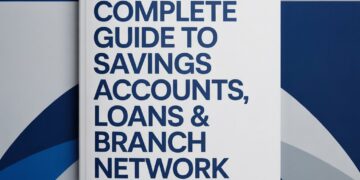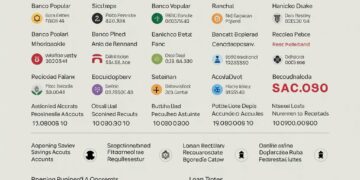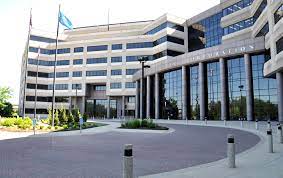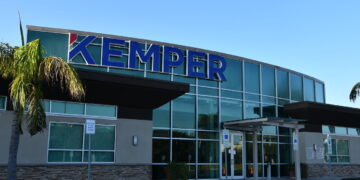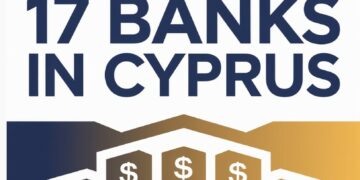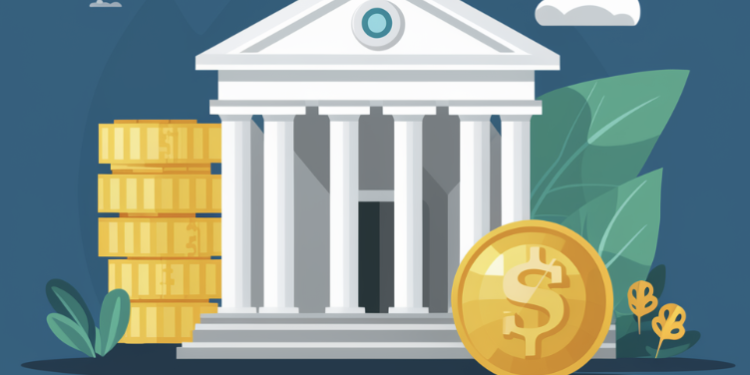5 Powerful Reasons for Banking Deposit Delays in the USA
In today’s fast-paced world, where instant gratification is often the norm, encountering delays in banking deposits can be frustrating. Whether it’s a paycheck, a client payment, or a personal transfer, having your funds held up can disrupt your financial plans and cause unnecessary stress. In this comprehensive blog post, we will delve into the common reasons for banking deposit delays in the USA, provide practical solutions, and offer tips to minimize these delays.
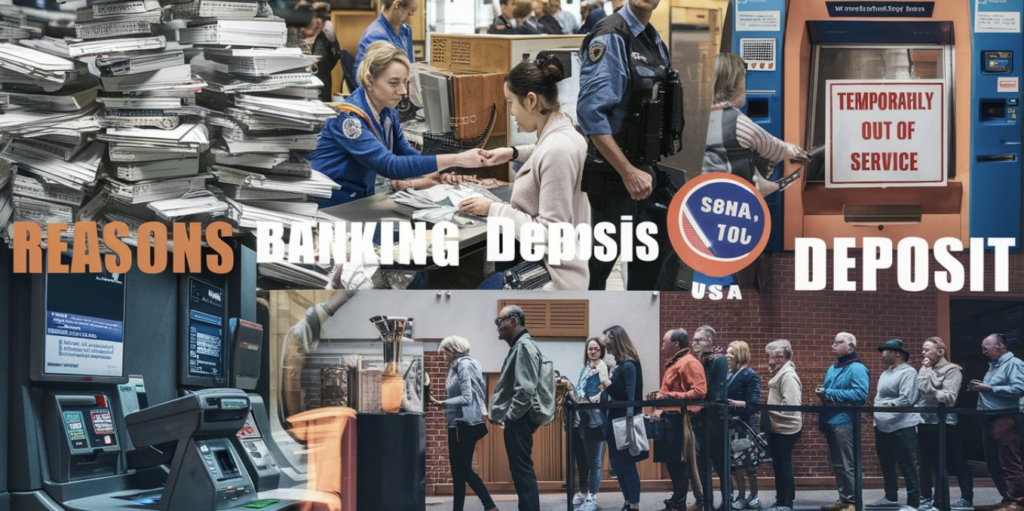
1. The Basics of Banking Deposits
Before we dive into the reasons behind deposit delays, it’s essential to understand how the banking system processes deposits. When you deposit a check or transfer funds into your account, the bank must verify and process the transaction. This process involves several steps, including verifying the check’s authenticity, ensuring sufficient funds in the payer’s account, and complying with regulatory requirements.
2. Common Reasons for Banking Deposit Delays
a. Bank Holidays and Weekends
One of the most straightforward reasons for deposit delays is the occurrence of bank holidays and weekends. Most banks do not process transactions on these days, which can result in delays if you make a deposit just before or during these periods. For example, if you deposit a check on Friday afternoon, it might not be processed until Monday or even Tuesday if Monday is a holiday.
b. Large Deposit Amounts
Banks have specific policies and regulations for processing large deposits. If your deposit exceeds a certain threshold, the bank may place a hold on the funds to verify the transaction’s legitimacy. This hold can last anywhere from a few days to a week, depending on the bank’s policies and the amount involved.
c. Insufficient Funds
If the account from which the funds are being transferred has insufficient funds, the deposit can be delayed or even rejected. This scenario is common with checks, where the bank needs to ensure that the payer has enough money to cover the check amount. If not, the bank will place a hold on the deposit until the funds are available.
d. Technical Glitches
In today’s digital age, technical issues can also cause deposit delays. Online banking systems, ATMs, and mobile banking apps are not immune to glitches and downtime. If there is a technical problem during the transaction, it can result in delays in processing your deposit.
e. Regulatory Compliance
Banks must comply with various regulatory requirements to prevent fraud, money laundering, and other financial crimes. As part of these compliance measures, banks may conduct additional checks on certain transactions, especially those involving large sums of money or international transfers. These checks can lead to delays in processing deposits.
3. How to Minimize Banking Deposit Delays

While some factors causing deposit delays are beyond your control, there are several steps you can take to minimize the chances of encountering such delays:
a. Deposit During Business Hours
To avoid delays caused by weekends and holidays, try to make your deposits during regular business hours. This ensures that your transaction is processed promptly and reduces the chances of it being delayed due to non-business days.
b. Use Direct Deposit
Whenever possible, opt for direct deposit instead of checks. Direct deposits are typically faster and more reliable, as they eliminate the need for physical checks and reduce the risk of funds being held up.
c. Verify Account Details
Before making a deposit, double-check the account details to ensure accuracy. Incorrect account numbers or routing numbers can lead to delays or even lost funds. Taking a few extra minutes to verify these details can save you time and frustration.
d. Monitor Your Account
Keep a close eye on your account after making a deposit. Monitoring your account allows you to quickly identify any issues and take appropriate action. Most banks offer online and mobile banking services that make it easy to track your transactions in real-time.
e. Contact Your Bank
If you experience repeated deposit delays or encounter a significant delay, don’t hesitate to contact your bank’s customer service. They can provide information on the status of your deposit and help resolve any issues that may be causing the delay.
4. Understanding Holds on Deposits
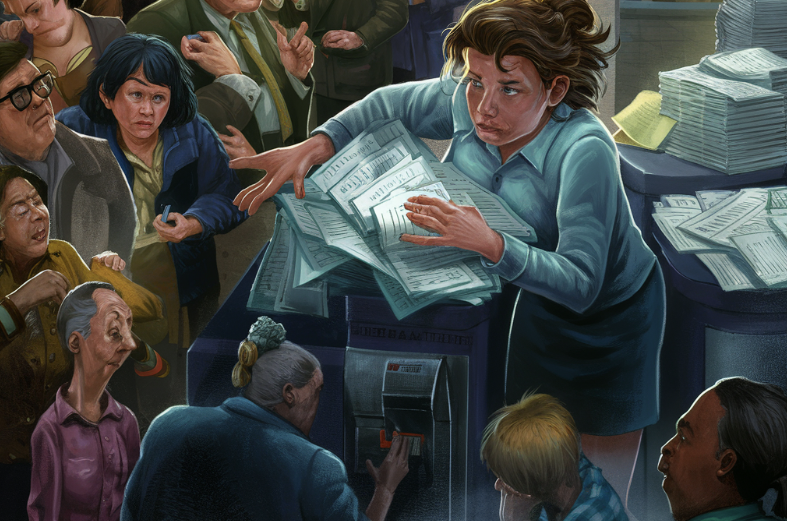
a. Type of Deposit
Different types of deposits may have varying hold periods. For example, checks may have longer hold periods compared to electronic transfers or cash deposits. It’s essential to understand your bank’s policies regarding different types of deposits. For more details on hold times, you can refer to this guide on deposit hold policies.
b. Account History
Your account history can also influence the duration of holds on deposits. If you have a history of overdrafts or insufficient funds, the bank may place longer holds on your deposits as a precautionary measure. For more information, check out this article on how account history affects deposits.
c. Amount of Deposit
As mentioned earlier, larger deposits are more likely to have holds placed on them. This is because the bank needs additional time to verify the transaction’s legitimacy and ensure that the funds are available. Learn more about how deposit amounts can affect hold times.
5. Solutions to Overcome Banking Deposit Delays
While you may not be able to eliminate deposit delays entirely, there are several solutions to help you manage and overcome them:
a. Build a Buffer
Maintain a financial buffer in your account to cover any unexpected delays. Having a cushion of funds can help you avoid overdrafts and ensure that you can meet your financial obligations even if a deposit is delayed. For tips on building a financial buffer, read this guide on emergency funds.
b. Plan Ahead
If you know that a significant deposit is coming, plan ahead to accommodate potential delays. Avoid scheduling important payments or expenses immediately after the expected deposit date to give yourself a buffer in case of delays.
c. Explore Alternative Banking Options
If you frequently encounter deposit delays with your current bank, consider exploring alternative banking options. Some banks offer faster processing times and better customer service, which can help reduce the chances of delays.
d. Leverage Technology
Take advantage of technology to streamline your banking processes. Mobile banking apps, online transfers, and direct deposits can help reduce the chances of delays and provide you with more control over your finances.
- Check Deposits
- Delays due to verification of check authenticity.
- Holds placed on larger check amounts.
- Processing time for out-of-state or foreign checks.
- Electronic Transfers (ACH Transfers)
- Delays in interbank processing times.
- Holds due to large transfer amounts.
- Verification of account details.
- Wire Transfers
- Processing delays for international wire transfers.
- Verification and compliance checks.
- Delays due to incorrect or incomplete recipient information.
- Cash Deposits
- Delays for large cash deposits requiring additional verification.
- Bank policies on cash deposit limits.
- Compliance checks for anti-money laundering regulations.
- Mobile Deposits
- Image verification and quality issues.
- Holds for large check deposits via mobile.
- Delays due to mobile app technical issues.
- ATM Deposits
- Processing delays if deposited outside of business hours.
- Verification of deposited funds.
- Holds on large deposit amounts.
- Direct Deposits
- Employer processing times.
- Delays due to holidays or weekends.
- Issues with payroll systems.
- Third-Party Payments (e.g., PayPal, Venmo)
- Processing times of third-party services.
- Verification of linked bank accounts.
- Delays in fund availability from third-party platforms.
For More details please contact below mentioned banks
Here is a list of some major banks in the USA along with their websites:
- Bank of America
- Website: www.bankofamerica.com
- Chase Bank (JPMorgan Chase & Co.)
- Website: www.chase.com
- Wells Fargo
- Website: www.wellsfargo.com
- Citibank
- Website: www.citi.com
- U.S. Bank
- Website: www.usbank.com
- PNC Bank
- Website: www.pnc.com
- Capital One
- Website: www.capitalone.com
- Truist Bank (formerly BB&T and SunTrust)
- Website: www.truist.com
- TD Bank
- Website: www.td.com
- American Express Bank
- Website: www.americanexpress.com
- Goldman Sachs (Marcus)
- Website: www.marcus.com
- Ally Bank
- Website: www.ally.com
- Discover Bank
- Website: www.discover.com
- Charles Schwab Bank
- Website: www.schwab.com
- Fifth Third Bank
- Website: www.53.com
- HSBC Bank USA
- Website: www.us.hsbc.com
- Regions Bank
- Website: www.regions.com
- Huntington National Bank
- Website: www.huntington.com
- KeyBank
- Website: www.key.com
- M&T Bank
- Website: www.mtb.com
Also Read
- Axis Bank Online Savings Account & Loan: 7 Easy Access Guide (facultytalkies.com)
- Top 7 Pro Tips for Opening a Savings Account at Bank of Montreal Canada (facultytalkies.com)
- 5 Effortless Steps to Open a Savings Account at Scotiabank Canada (facultytalkies.com)
- 5 Ultimate Steps to BCI Bank Mozambique Account Opening and Online Banking Success (facultytalkies.com)
- 5 Ultimate Reasons to Choose Utica National Insurance Group for Unstoppable Success (facultytalkies.com)
- 7 Easy Steps to Safeguard Your Property with Citizens Insurance (facultytalkies.com)
- 10 Surprising Sucessful Facts About Grange Insurance Pool (facultytalkies.com)
- ICW Pool Insurance Group: Top 3 Effective Benefits (facultytalkies.com)
- Intact US Insurance Group:10 Essential Steps to Successfully Getting Insurance (facultytalkies.com)
- IAT Insurance Group: 7 Innovative Ways to Secure New Insurance (facultytalkies.com)


